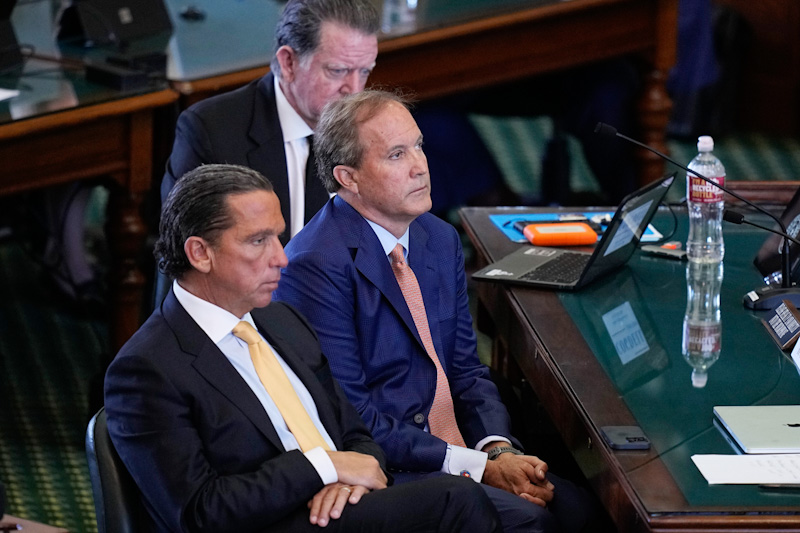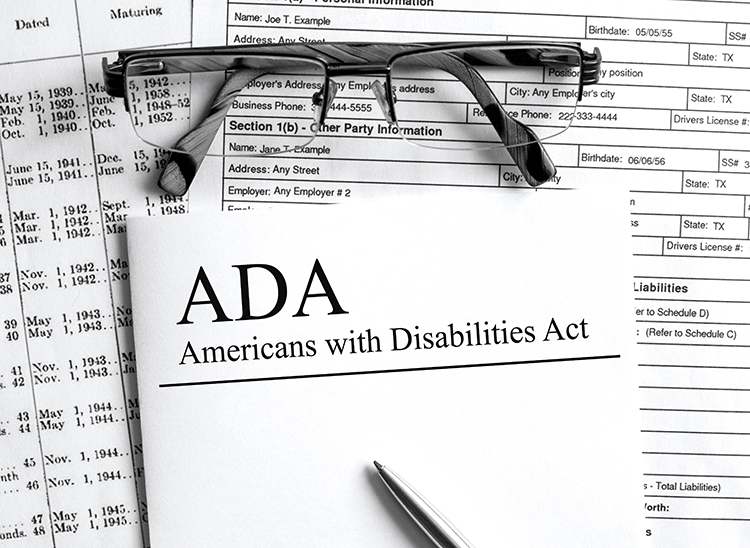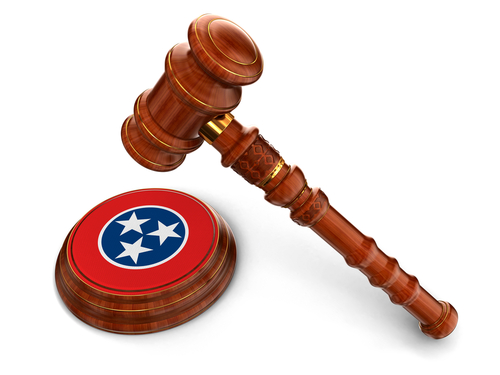Arrested citizen journalist wasn’t ‘martyr’ for journalism, 5th Circuit says in tossing her First Amendment suit
First Amendment
Arrested citizen journalist wasn’t ‘martyr’ for journalism, 5th Circuit says in tossing her First Amendment suit
January 25, 2024, 9:24 am CST
Police and prosecutors have qualified immunity that protects them in a lawsuit filed by a citizen journalist arrested for publishing nonpublic information provided by a police source, a federal appeals court ruled Tuesday. (Image from Shutterstock)
Police and prosecutors have qualified immunity that protects them in a lawsuit filed by a citizen journalist arrested for publishing nonpublic information provided by a police source, a federal appeals court ruled Tuesday.
The 5th U.S. Circuit Court of Appeals at New Orleans tossed the suit filed by Laredo, Texas, citizen journalist Priscilla Villarreal in a 9-7 en banc opinion issued Jan. 23.
The appeals court said the defendants—including Laredo, Texas, police officers, Webb County, Texas, prosecutors and others—had qualified immunity. Judge Edith H. Jones wrote the majority opinion.
The seven dissenters included four conservatives, Reuters reports.
They are Judge Jennifer Walker Elrod, Judge Don R. Willett, Judge James C. Ho and Judge Andrew S. Oldham. Elrod is an appointee of former President George W. Bush, and the others are appointees of former President Donald Trump.
Villarreal had sued in 2019 for alleged violations of the First, Fourth and 14th Amendments under Section 1983 of the Civil Rights Act. Her suit stems from her arrest for publishing the name and occupation of a U.S. Border Patrol employee who died after jumping from a Laredo public overpass and for publishing the name of a person killed in a traffic accident.
Villarreal was charged under a law that makes it a crime to solicit or receive nonpublic information from a public servant, with the intent to obtain a benefit. She petitioned for a writ of habeas corpus, which was granted by a judge who held that the law was unconstitutionally vague. She then filed her Section 1983 suit.
“Villarreal and others portray her as a martyr for the sake of journalism,” Jones wrote. “That is inappropriate. She could have followed Texas law, or challenged that law in court, before reporting nonpublic information from the backchannel source. By skirting Texas law, Villarreal revealed information that could have severely emotionally harmed the families of decedents and interfered with ongoing investigations. Mainstream, legitimate media outlets routinely withhold the identity of accident victims or those who committed suicide until public officials or family members release that information publicly. Villarreal sought to capitalize on others’ tragedies to propel her reputation and career.”
Villarreal can’t overcome the defendants’ claim of qualified immunity unless the defendants violated a constitutional right and the right was clearly established at the time of the alleged misconduct.
Jones said Villarreal couldn’t make that showing because she was arrested based on a reasonable belief by the defendants that there was probable cause her conduct violated a Texas law that had not yet been declared unconstitutional.
Four judges wrote dissents that were joined by five and sometimes six other judges.
Willett wrote this in his dissent: “While the majority says the officers could not have ‘predicted’ that their thought-out plan to lock up a citizen journalist for asking questions would violate the First Amendment—a plan cooked up with legal advice from the Webb County district attorney’s office, mind you—the majority simultaneously indulges the notion that Villarreal had zero excuse for not knowing that her actions might implicate an obscure, never-used provision of the Texas Penal Code.
“In other words, encyclopedic jurisprudential knowledge is imputed to Villarreal, but the government agents targeting her are free to plead (or feign) ignorance of bedrock constitutional guarantees. In the upside-down world of qualified immunity, everyday citizens are demanded to know the law’s every jot and tittle, but those charged with enforcing the law are only expected to know the ‘clearly established’ ones. Turns out, ignorance of the law is an excuse—for government officials.”
Ho began his opinion this way: “If the First Amendment means anything, surely it means that citizens
have the right to question or criticize public officials without fear of imprisonment. The Constitution doesn’t mean much if you can only ask questions approved by the state.”
The case is Villarreal v. City of Laredo.






